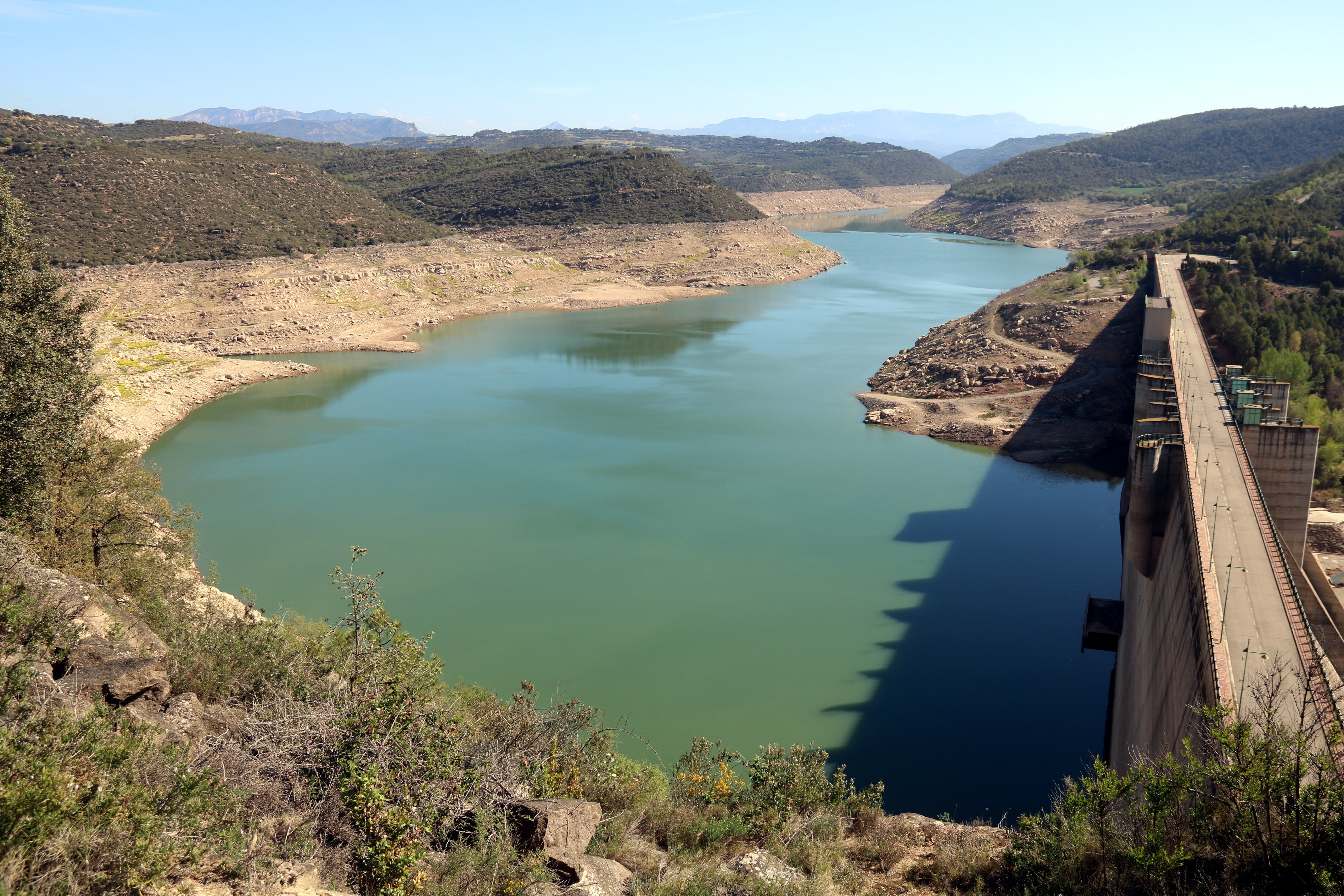Some rain may have fallen over the long weekend, but the drought situation is not over, not by a long shot. In fact, this Tuesday after meeting with the interdepartmental drought committee, the Catalan government agreed on the elevation of seven new areas of Catalonia into the phase of Exceptionality, the second highest level in the drought classification, after Emergency status, which more than doubles the number of municipalities in this category, from 224 to 495. At the same time, this Tuesday afternoon saw a breakthrough of sorts in the Catalan Parliament, as the chamber ended its recent paralysis on the issue and voted to move forward with the proposal of Junts to modify the government's decree on drought measures. The motion plans a moratorium until July 1st on fines for municipalities that do not comply with the decree while also proposing to use the Catalan Water Agency's surplus in major new water investments. All parties voted to consider the Junts proposal in a fast-track vote on Thursday, except for the Comuns and the CUP, who opposed it, and Vox, who abstained.
"We need rain for the rest of May"
The seven areas of Catalonia that have been newly classified in Exceptionality status are Anoia-Gaià, the headwaters of the Ter, the Darnius-Boadella reservoir, the Empordà, the Llobregat Mitjà, Prades, Llaberia and the Serralada Transversal. Thus, the number of municipalities in Exceptionality status goes from 224 to 495, although it already covered the bulk of the Catalan population - around six million people - and now is also expanding across less-populated but agriculturally and ecologically important rural areas. Although the recent rains have been "positive", the director of the Catalan Water Agency (ACA), Samuel Reyes, has warned that they are "insufficient". There are now 495 Catalan municipalities in a situation of Exceptionality, 28 in the Alert phase, 54 in the Pre-alert phase and 43 others have a Normal status. After the rain over the last few days, the director of the ACA has warned that "we would need the whole month of May to be like this" to provide a solution to the drought situation. But the precipitation of the last few days does give "a couple of weeks of leeway" to water reserves.
As Catalan government spokesperson Patricia Plaja explained, municipalities in a situation of Exceptionality are affected by a set of measures that includes a ban on the cleaning of streets and facades with drinkable water, the use of water for watering of gardens and green areas of a public or private nature (except for 'survival irrigation'), and tightened limits on use of industrial water consumption, with a maximum allocation of 230 litres per person per day calculated at the level of each affected municipality.
Above, the municipalities in the Catalan Water Agency area affected by the drought: Red for 'Emergency' has been reached in 3 reservoirs (red circles), with most of the territory now orange for 'Exceptional'. The grey-shaded western areas of Catalonia are administered by the CHE, or Ebro Hydraulic Confederation, because they are in the catchment area for the river Ebre, which discharges at the Delta, at the south of this map.
Junts drought proposal moves forward
This Tuesday afternoon saw a step forward for the Junts party proposal to modify the Catalan government's decree on drought measures. A majority in Parliament agreed with this initiative being processed by an urgent, single-reading procedure, a proposal which was supported by all parties with the exception of Vox (which abstained) and the CUP and the Comuns, which voted against. For Junts, deputy Salvador Vergés defended the push for this initiative with the need for "quick and effective solutions" and because the "grave" situation calls for "action now". The agreement to take the motion forward, he said, represents a turning point that "breaks the paralysis" of Catalonia's ERC government in this matter. The proposal includes a moratorium until July 1st for the fines regime against municipalities that do not comply with the decree and calls to invest 500 million euros of the Catalan Water Agency's surplus to promote new water infrastructures. Vergés explained that the party presented this proposal due to the "failure of the Water Summit" at which the executive "wasn't able to lead a consensus and the other parties fell apart".

